Filter by

Digital Entrepreneurship
Sebastian Pioch beschreibt in diesem essential an einem durchgehenden Beispiel, wie Start-ups oder bestehende Unternehmen digitale Produkte entwickeln, testen und schließlich am Markt etablieren können. Kompakt und leicht verständlich führt der Autor aus, welche Schritte und Methoden geeignet sind, um mit limitierten Ressourcen und Erfahrungswerten ein digitales Produkt erfolgreich zu entwi…
- Edition
- 1
- ISBN/ISSN
- 978-3-658-24068-4
- Collation
- Business and Economics
- Series Title
- -
- Call Number
- 650
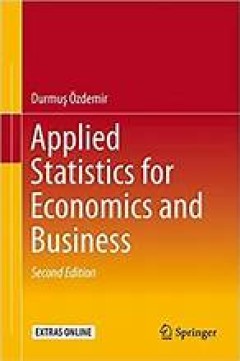
Applied Statistics for Economics and Business
This textbook introduces readers to practical statistical issues by presenting them within the context of real-life economics and business situations. It presents the subject in a non-threatening manner, with an emphasis on concise, easily understandable explanations. It has been designed to be accessible and student-friendly and, as an added learning feature, provides all the relevant data req…
- Edition
- 1
- ISBN/ISSN
- 978-3-319-26497-4
- Collation
- Mathematics
- Series Title
- -
- Call Number
- 510
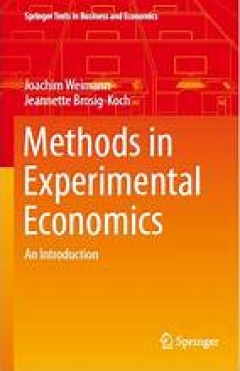
Methods in Experimental Economics
This textbook provides a hands-on and intuitive overview of the methodological foundations of experimental economics. Experimental economic research has been an integral part of economic science for quite some time and is gaining more and more attention in related disciplines. The book addresses the design and execution of experiments, the evaluation of experimental data and the equipment of a…
- Edition
- 1
- ISBN/ISSN
- 978-3-319-93363-4
- Collation
- Ekonomi
- Series Title
- -
- Call Number
- 330
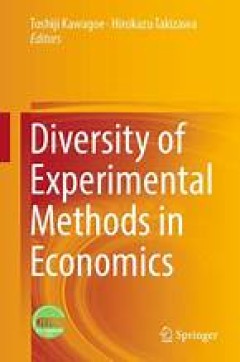
Diversity of Experimental Methods in Economics
This is the first book that examines the diverse range of experimental methods currently being used in the social sciences, gathering contributions by working economists engaged in experimentation, as well as by a political scientist, psychologists and philosophers of the social sciences. Until the mid-twentieth century, most economists believed that experiments in the economic sciences were im…
- Edition
- 1
- ISBN/ISSN
- 978-981-13-6065-7
- Collation
- Econometrics
- Series Title
- -
- Call Number
- 330
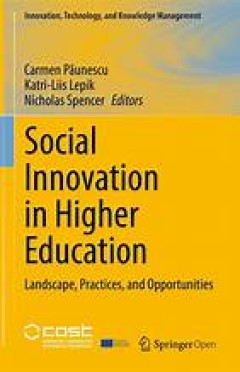
Social Innovation in Higher Education
This open access book offers unique and novel views on the social innovation landscape, tools, practices, pedagogies, and research in the context of higher education. International, multi-disciplinary academics and industry leaders present new developments, research evidence, and practice expertise on social innovation in higher education institutions (HEIs), across academic and professional di…
- Edition
- 1
- ISBN/ISSN
- 978-3-030-84044-0
- Collation
- Sosial Ekonomi
- Series Title
- -
- Call Number
- 261

Finance & Economics Readings
This book is a compilation of the best papers presented at the 2017 installment of the Asia-Pacific Conference on Economics & Finance (APEF), which is held annually in Singapore. With a great number of submissions, it presents the latest research findings in economics and finance and discusses relevant issues in today's world. The book is a useful resource for readers who want access to econom…
- Edition
- 1
- ISBN/ISSN
- 978-981-10-8147-7
- Collation
- EKONOMI
- Series Title
- -
- Call Number
- 330

Technology Transfer and Entrepreneurial Innovations
Evidence suggests that economies with technology transfer initiatives provide a better supply of high-quality jobs and tend to be characterized by entrepreneurs with higher innovation contributions. This book explores the effectiveness of technology transfer policies and legislation on entrepreneurial innovation in a non-US context. It analyses the theoretical, empirical and managerial implicat…
- Edition
- 1
- ISBN/ISSN
- 978-3-030-70022-5
- Collation
- Business Management
- Series Title
- -
- Call Number
- 650
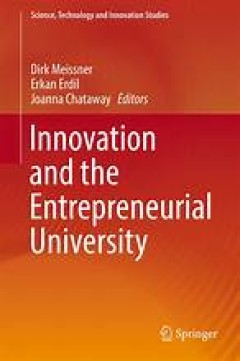
Innovation and the Entrepreneurial University
The book explores different approaches towards the ‘entrepreneurial university’ paradigm, explores channels and mechanism used by universities to implement the paradigm and contributes to the public discussion on the impact of commercialization on university research and knowledge. It argues that different types of university-industry interaction may have repercussions even on funding of ba…
- Edition
- 1
- ISBN/ISSN
- 978-3-319-62649-9
- Collation
- Ekonomi
- Series Title
- -
- Call Number
- 330
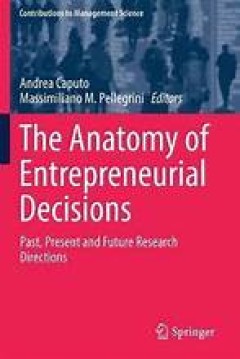
The Anatomy of Entrepreneurial Decisions
The creation, success and long-term survival of enterprises are fundamentally linked to the effectiveness of decision-making processes and negotiation capabilities. This book provides an overview of research into how decisions permeate entrepreneurial ventures throughout their lifecycle. A multidisciplinary approach combining psychology, sociology and political science is used to investigate ho…
- Edition
- 1
- ISBN/ISSN
- 978-3-030-19685-1
- Collation
- Manajemen
- Series Title
- -
- Call Number
- 658
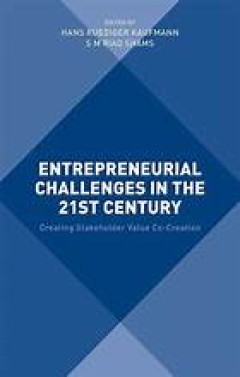
Entrepreneurial Challenges in the 21st Century
Entrepreneurial Challenges in the 21st Century analyses the traditional and contemporary issues of entrepreneurial innovation potentials for stakeholder value co-creation, and structures the entrepreneurial co-creation concept to reinforce co-creation.
- Edition
- 1
- ISBN/ISSN
- 978-1-137-47976-1
- Collation
- Business Management
- Series Title
- -
- Call Number
- 650
 Computer Science, Information & General Works
Computer Science, Information & General Works  Philosophy & Psychology
Philosophy & Psychology  Religion
Religion  Social Sciences
Social Sciences  Language
Language  Pure Science
Pure Science  Applied Sciences
Applied Sciences  Art & Recreation
Art & Recreation  Literature
Literature  History & Geography
History & Geography